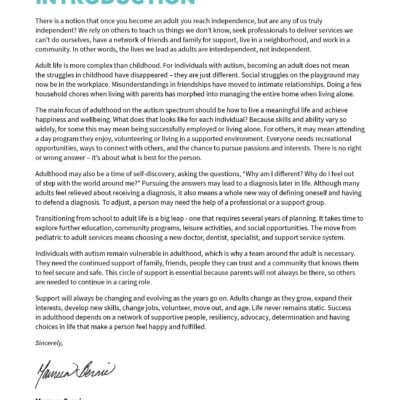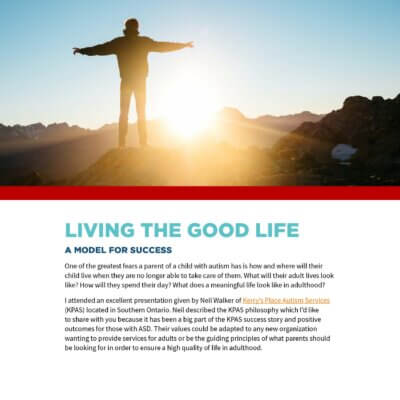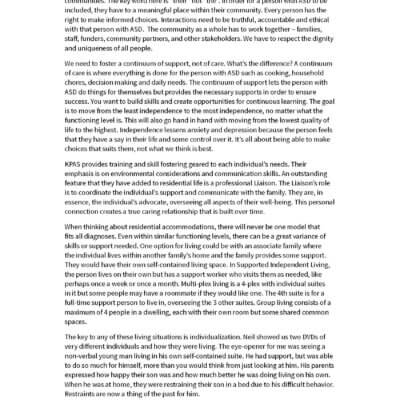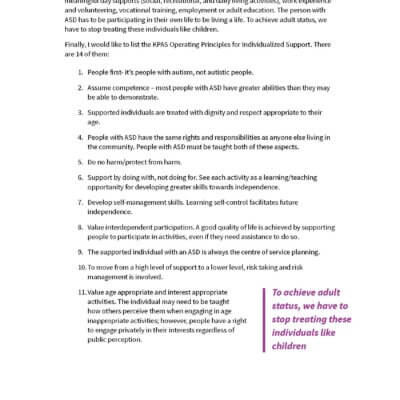
Autism Spectrum Disorder in Adulthood E-Book
There is a notion that once you become an adult you reach independence, but are any of us truly independent? We rely on others to teach us things we don’t know, seek professionals to deliver services we can’t do ourselves, have a network of friends and family for support, live in a neighborhood, and work in a community. In other words, the lives we lead as adults are interdependent, not independent.
Adult life is more complex than childhood. For individuals with autism, becoming an adult does not mean the struggles in childhood have disappeared – they are just different. Social struggles on the playground may now be in the workplace. Misunderstandings in friendships have moved to intimate relationships. Doing a few household chores when living with parents has morphed into managing the entire home when living alone.
The main focus of adulthood on the autism spectrum should be how to live a meaningful life and achieve happiness and wellbeing. What does that looks like for each individual? Because skills and ability vary so widely, for some this may mean being successfully employed or living alone. For others, it may mean attending a day program they enjoy, volunteering or living in a supported environment. Everyone needs recreational opportunities, ways to connect with others, and the chance to pursue passions and interests. There is no right or wrong answer – it’s about what is best for the person.
$3.90




